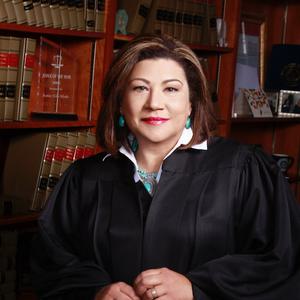The upcoming execution of Ronnie Lee Gardner, who has opted to be killed by a firing squad in Utah on June 18, has attracted the attention of many people of faith in the state. Hours before Gardner’s execution, prominent religious leaders will gather for a vigil to protest the execution. Religious leaders from groups often associated with being supportive of the death penalty have recently voiced concerns about the practice. The Mormon Church has moved from a position of support for capital punishment to one of neutrality, with some leaders opposing it. Philip Barlow, who holds the Arrington Chair of Mormon History and Culture at Utah State University said, “I can’t imagine Jesus Christ participating in that sort of justice.” State representative Greg Hughes, R-Draper and a Mormon, agreed with Barlow’s opposition for other reasons . “I don’t want to give government the right to execute citizens, period,” he said. “Inevitably, you’re going to kill innocent people.” Shuaib-ud Din, imam of the Utah Islamic Center believes that the Quran and Prophet Muhammad’s sayings support the death penalty, but he has reservations about how well the system works and whether innocent people have been executed. He said, “The judicial system has to be near perfect for capital punishment to take place.”
Rabbi Joshua Aaronson, of Park City’s Temple Har Shalom, said Jews never have seen “eye for an eye” as an excuse for retribution, for taking the life even of a killer. “There is no equality in justice in that way. It never works,” Aaronson said. “One life can’t be substituted for another life….We diminish ourselves as a state whenever we put to death anyone by any means.” Nancy Appleby, chairwoman of the Utah Episcopal Diocese’s Peace and Justice Commission, said she had no great sympathy for people such as Gardner. “He’s done terrible, terrible things, and it’s very hard to love him,” said Appleby. “But if we’re called to love everyone, that includes Ronnie Lee Gardner.” Episcopalians have opposed the death penalty for 50 years.
Catholic Monsignor M. Francis Mannion, pastor of St. Vincent de Paul Catholic Church in Utah, said his faith has taught against the death penalty explicitly since the 1960s and the Second Vatican Council. “It is part of the church’s pro-life stance, which opposes killing anyone.”
(K. Moulton, “Faiths and the faithful have varied views of death penalty,” Salt Lake Tribune, June 10, 2010). See New Voices and Religion and the Death Penalty. DPIC has a resource packet, Death Penalty Resources for Communities of Faith, available for groups interested in studying the death penalty in their congregations. For more information, email religious@deathpenaltyinfo.org.
New Voices
Mar 21, 2024

Retired Judge Elsa Alcala on the Death Penalty in Texas
New Voices
Mar 21, 2024


